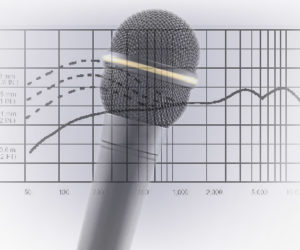A colleague of mine recently shared a term that took me by surprise.
The term was “fader rider,” which my colleague had given to one of his sound operators.
He went on to describe a particular operator that would show up and run the sound board only using faders.
It didn’t matter what the board was set up for, this person would just use what was there and if something was not patched or the monitors were not right, too bad you get what he had and that was final.
The problem is quite obvious. A “fader rider” is so intimidated by the mixing board that he is afraid to touch anything but the channel faders.
In the “fader riders” defense he most likely had a bad experience where he changed something else on the board and had catastrophic results.
Additionally, he was most likely chastised for touching that part of the board by the worship leader, pastor or head of the sound team (maybe all of them).
On the opposite side of that coin I have had numerous experiences with the “fader raider”. This well-intentioned, arrogant operator not only feels comfortable changing the faders.
He also falsely believes that he knows exactly what he is doing and “raids” the rest of the mixing board, changing every knob in-site. When he ends up with catastrophic results he blames the previous operator for messing the board up.
One of the concerns that I have with the digital consoles available today is that many people are jumping on the band wagon assuming that with the memory and recall options on the boards the “fader rider and raider” issues will go away.
However, I think most of these beliefs are not firmly based on reality.
Unfortunately, the “fader rider” already intimidated by the mixing board is going to be more intimidated, probably so intimidated that he will not even touch the part of the board set up for preset recall.
The “fader raider” now poses even a greater threat as they now have an exponential number of parameters to adjust and of course will write over presents and may even change the boards input and output configuration.
I know what some of you are thinking; with the memory function, even if the “fader raider” wipes out presets or even changes the entire configuration I can easily restore the board to its “normal” state.
True.
However the main point is being missed.
Training
Why is there a “fader rider”?
1) He has not been given proper training and guidance
2) He does not want to learn
Why is there a “fader raider?”
1) His understanding of the board is incomplete
2) He arrogantly thinks he knows everything and will not “subject or lower himself” to accept any training.
Good news!
If the reason for the “rider and raiders” problem is issue number one, there are a growing number of sound training options available.
Also, If the reason for the “rider and raiders” problem is issue number two, fire them. Without the right spirit and attitude they are no benefit and actually a huge hindrance to your team. Once that’s done, it’s time to recruit some new blood!
Frankly, I’d rather have a “fader rider” or “fader rookie” that is open to learning over a “fader raider” any day!
Gary Zandstra is a professional AV systems integrator with Parkway Electric and has been involved with sound at his church for more than 25 years.




